Orignial question:
My code to parse:
N100G1M4
What I expcted: N100 G1 M4
But ANTLR can not idetify this because ANTLR always match longest substring?
How to handle the case?
Update
What I am going to do:
I am trying to parse CNC G-Code txt and get keywords from a file stream, which is usually used to control a machine and drive motors to move.
The G-Code rule is :
// Define a grammar called Hello
grammar GCode;
script : blocks+ EOF;
blocks:
assign_stat
| ncblock
| NEWLINE
;
ncblock :
ncelements NEWLINE //
;
ncelements :
ncelement+
;
ncelement
:
LINENUMEXPR // linenumber N100
| GCODEEXPR // G10 G54.1
| MCODEEXPR // M30
| coordexpr // X100 Y100 Z[A+b*c]
| FeedExpr // F10.12
| AccExpr // E2.0
// | callSubroutine
;
assign_stat:
VARNAME '=' expression NEWLINE
;
expression:
multiplyingExpression ('+' | '-') multiplyingExpression
;
multiplyingExpression
: powExpression (('*' | '/') powExpression)*
;
powExpression
: signedAtom ('^' signedAtom)*
;
signedAtom
: '+' signedAtom
| '-' signedAtom
| atom
;
atom
: scientific
| variable
| '(' expression ')'
;
LINENUMEXPR: 'N' Digit+ ;
GCODEEXPR : 'G' GPOSTFIX;
MCODEEXPR : 'M' INT;
coordexpr:
CoordExpr
| ParameterKeyword getValueExpr
;
getValueExpr:
'[' expression ']'
;
CoordExpr
:
ParameterKeyword SCIENTIFIC_NUMBER
;
ParameterKeyword: [XYZABCUVWIJKR];
FeedExpr: 'F' SCIENTIFIC_NUMBER;
AccExpr: 'E' SCIENTIFIC_NUMBER;
fragment
GPOSTFIX
: Digit+ ('.' Digit+)*
;
variable
: VARNAME
;
scientific
: SCIENTIFIC_NUMBER
;
SCIENTIFIC_NUMBER
: SIGN? NUMBER (('E' | 'e') SIGN? NUMBER)?
;
fragment NUMBER
: ('0' .. '9') + ('.' ('0' .. '9') +)?
;
HEX_INTEGER
: '0' [xX] HEX_DIGIT+
;
fragment HEX_DIGIT
: [0-9a-fA-F]
;
INT : Digit+;
fragment
Digit : [0-9];
fragment
SIGN
: ('+' | '-')
;
VARNAME
: [a-zA-Z_][a-zA-Z_0-9]*
;
NEWLINE
: '\r'? '\n'
;
WS : [ \t]+ -> skip ; // skip spaces, tabs, newlines
Sample program(it works well except the last line):
N200 G54.1
a = 100
b = 10
c = a + b
Z[a + b*c]
N002 G2 X30.1 Y20.1 I20.1 J0.1 K0.2 R20
N100 G1X100.5Z[VAR1+100]M3H3 // it works well except the last line
I want to parse N100G1X100.5YE5Z[VAR1+100]M3H3 to
I am trying to use ANTLR, but ANTLR always take the rule "longest match wins". N100G1X100 is identified to a word.
Append question: What's the best tool to finish the task?
